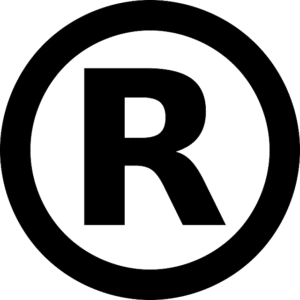© 2019 All Rights Reserved
The follow is a guest blog post from Susan Colman, an attorney who concentrates her practice in the trademark and copyright areas, along with software protection and licensing. Read more about Susan following the post.
When we were young kids, we were sure that there were monsters under our beds, right? Our moms and dads came into our rooms with flashlights and showed us that the only thing under our beds were, perhaps, dust bunnies or a random baseball bat or tennis ball or dog collar. If there was a monster in the closet, it turned out to be a bathrobe.
We’re all grown up now, thankfully, and we think we’re not in any danger from monsters, anymore. If that’s your stance as a business owner, you are sadly—and potentially dangerously—mistaken. In fact, there is a very serious monster silently lurking, which may attack at any moment. Even if nothing’s happened yet, even over a long period of time, you still can’t put your head in the sand. This monster is in the form of a trademark torpedo.
What’s a trademark torpedo?
 A trademark torpedo is a trademark owner who comes at you with a claim of infringement, even when you think you’ve done everything you thought you needed to do when you started up your business. You drafted a business plan, you raised capital, you established a place of business and you dutifully did your company name search to determine that the name of your business would not be interfering with any other company’s name in your particular state. Congratulations. But you didn’t go far enough to determine that the wonderful name you chose for your business was not infringing on someone else’s trademark, even if it passed muster in the company name search. Indeed, a corporate name search is not the same as a trademark search. In fact, if a trademark search is not done at the outset—once you’ve selected a name for your company—the likelihood of a trademark torpedo being launched and targeted directly against you rises exponentially.
A trademark torpedo is a trademark owner who comes at you with a claim of infringement, even when you think you’ve done everything you thought you needed to do when you started up your business. You drafted a business plan, you raised capital, you established a place of business and you dutifully did your company name search to determine that the name of your business would not be interfering with any other company’s name in your particular state. Congratulations. But you didn’t go far enough to determine that the wonderful name you chose for your business was not infringing on someone else’s trademark, even if it passed muster in the company name search. Indeed, a corporate name search is not the same as a trademark search. In fact, if a trademark search is not done at the outset—once you’ve selected a name for your company—the likelihood of a trademark torpedo being launched and targeted directly against you rises exponentially.
When a trademark (or service mark, used for the provision of services, as opposed to goods) is registered in the U.S. Patent and Trademark Office, it gives the registration owner the right to enforce its rights in all 50 states, regardless of whether or not it does business in all 50 states. But keep in mind that the Lanham Act (the name of the Trademark Law in the United States) allows for infringement actions to be brought in federal court, even if the infringed upon mark is not registered. From the date of first use of a mark for goods and/or services, goodwill is established and starts accruing. Goodwill is a very valuable commodity, and the longer the mark is used, the more valuable the associated goodwill becomes, whether a mark is registered or not.
If you have not yet had a trademark search done on the name of your company, or on the names of any of the products or services you may provide, it’s time to do so now. This should be imperative for two important reasons. First, if it can be determined that you are the senior user of the mark you choose, you are then in a position to act on the offensive and prevent someone else from using your mark, even if it means demanding that the junior user change its name or the names of its products or services. Second, if it turns out that you are the junior user, and depending upon how long you and the senior user have peacefully coexisted, you could be in the position to request a consent agreement, whereby the senior user would consent to your continued use of your mark (and, perhaps, even allowing you to obtain a separate registration of your mark), instead of facing expensive and time consuming infringement litigation. In the latter case, and if you lose that battle, you will be ordered to disgorge all your profits and other damages. Of course, this would be the case where the products (goods and/or services) were in the same or related industries.
It should make sense to you by now that if you protect your company in advance, you will save a lot of money, time and stress. Besides, the problem with keeping your head in the sand is that your most vulnerable body part is way up in the air, making it a perfect target for a trademark torpedo.
 Susan Colman has been practicing law for 38 years in Washington, DC. She concentrates her practice in the trademark and copyright areas, along with software protection and licensing. She may be reached by telephone at (202) 885-5533 or by visiting this website. Ms. Colman is also Of Counsel to Technology Law Group, which litigates in the areas of telecommunications, technology and intellectual property.
Susan Colman has been practicing law for 38 years in Washington, DC. She concentrates her practice in the trademark and copyright areas, along with software protection and licensing. She may be reached by telephone at (202) 885-5533 or by visiting this website. Ms. Colman is also Of Counsel to Technology Law Group, which litigates in the areas of telecommunications, technology and intellectual property.


